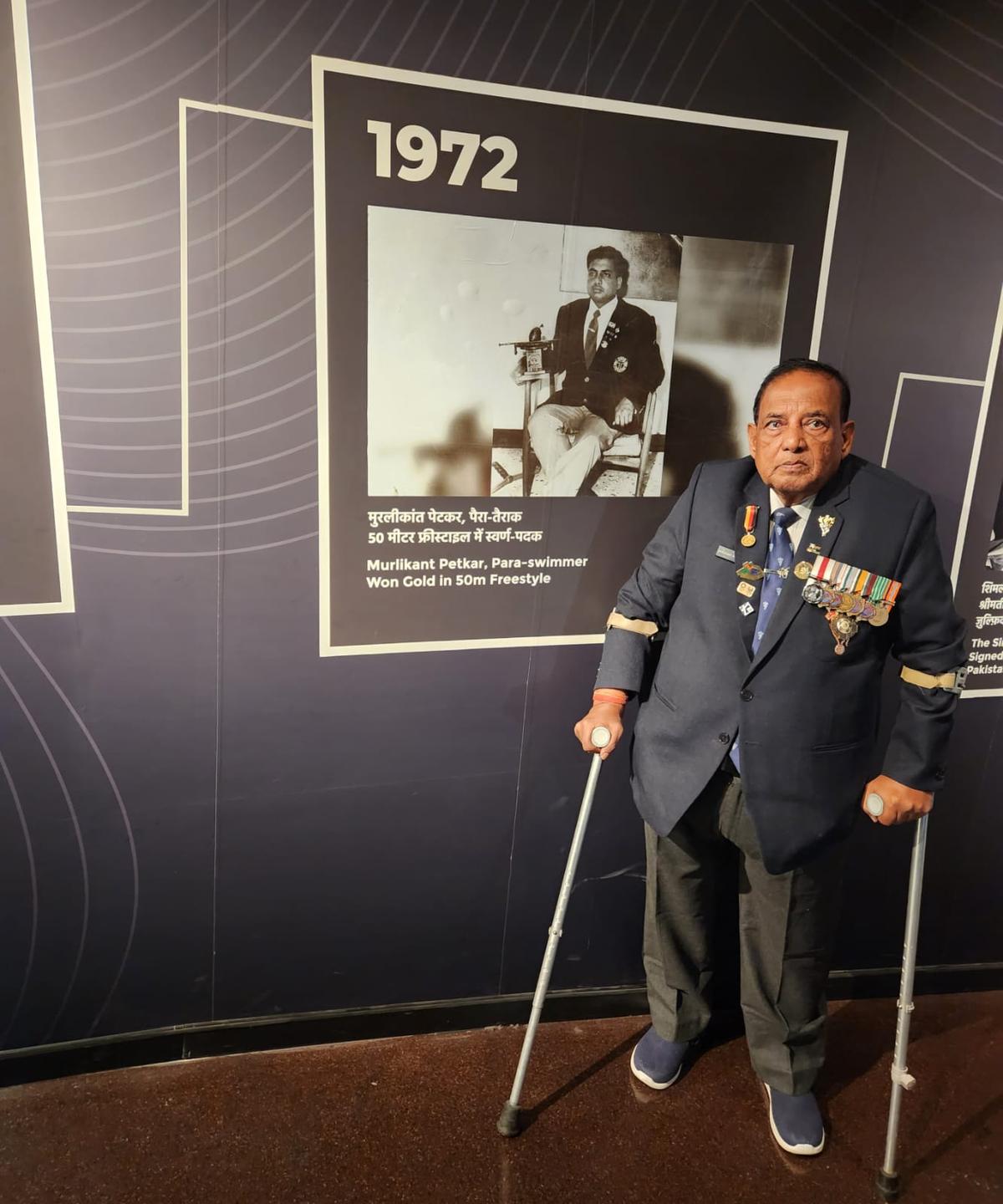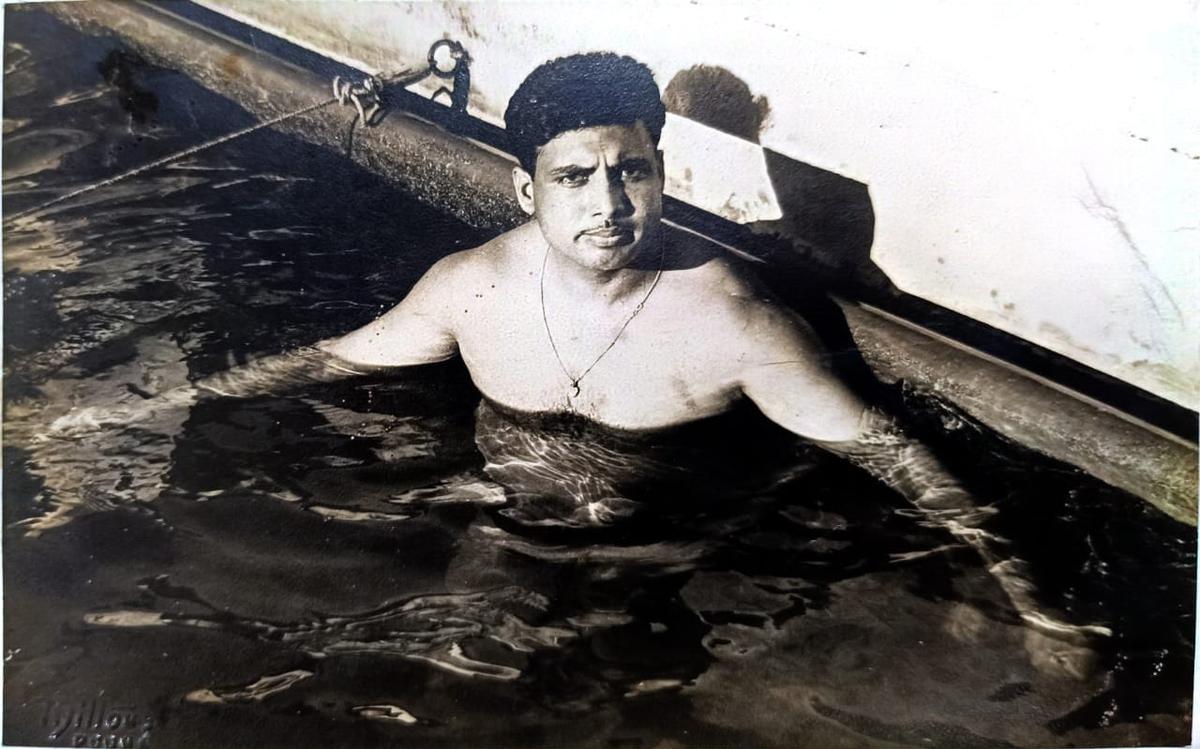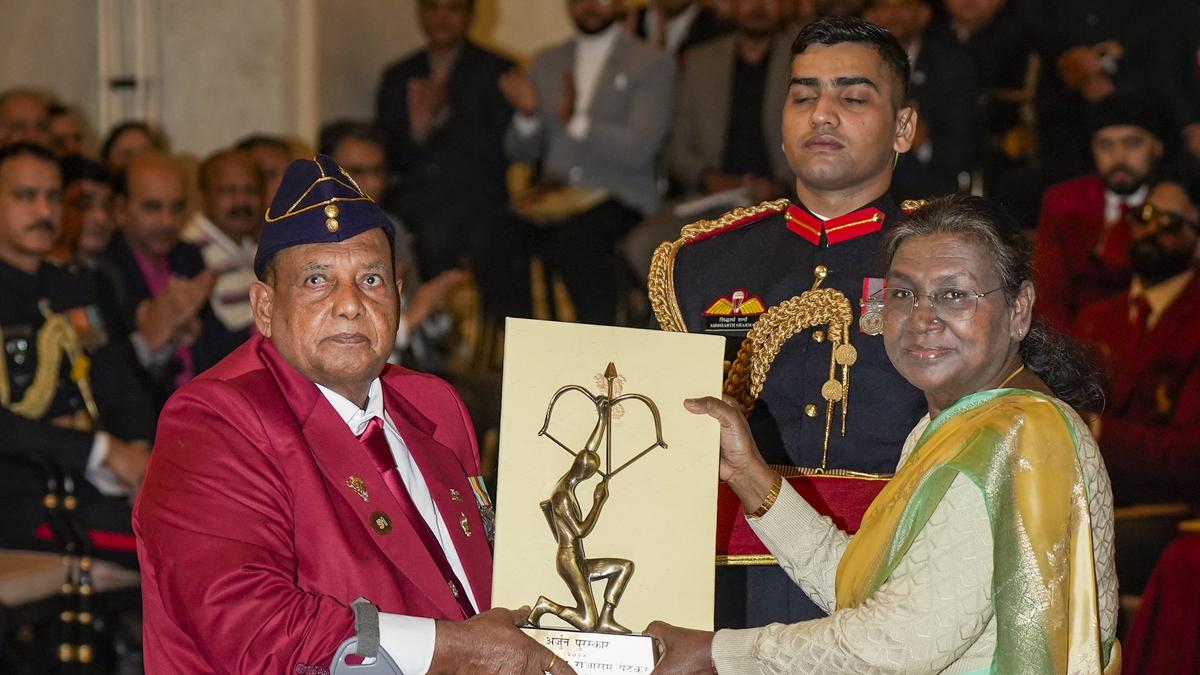Muralikant Petkar’s Arjuna dream fulfilled: How bureaucracy left a war veteran yearning for recognition
CONTENT WARNING: MENTIONS OF SUICIDE, MENTAL HEALTH ISSUES, PHYSICAL INJURY
For Murlikant Petkar, the second day of the new year was going as per the routine of his post-retirement life. He was taking a nap after having his lunch. Around 4pm, his daughter-in-law got a phone call from a government officer. The subject of the call was significant enough for her to wake the octogenarian up.
Petkar, who clinched India’s first-ever Paralympic gold medal with a world record-breaking performance in para-swimming during the 1972 edition in Heidelberg, Germany, was finally going to receive the Arjuna Award, albeit in the lifetime category.
It took until 2018 before Petkar finally got the national recognition for this remarkable achievement in the form of the Padma Shri Award.
However, it is the fight for the Arjuna Award on which Petkar spent more than half of his life.

Petkar admitted that had he applied for the Arjuna Award within four years of the Paralympic gold, he may have actually received it.
| Photo Credit:
SPECIAL ARRANGEMENT
Petkar admitted that had he applied for the Arjuna Award within four years of the Paralympic gold, he may have actually received it.
| Photo Credit:
SPECIAL ARRANGEMENT
Petkar, who grew up in Islampur village in Sangli district of Maharashtra, wanted to become the first Indian to win an individual Olympic gold. His peers mocked him while his family discouraged him from pursuing a career in sports.
He ran away from home and joined the army where he took an interest in boxing. But his dream of winning an Olympic gold took a huge blow when several bullet wounds suffered during the 1965 war against Pakistan rendered him a paraplegic.
“I was admitted to INHS Asvini hospital in Bombay (now Mumbai). I wanted to spend a few days at home with my family after the operation in which the doctors were able to remove all the bullets out of my body except the one lodged in my spine. But my elder brother asked me to stay at the hospital due to the lack of adequate medical facilities in our village,” Petkar told Sportstar.
“It is then when I decided to attempt suicide. Obtaining a sleeping pill wasn’t easy but I would request the nurse to provide me one every night on account of severe pain. In this way, I collected 35 tablets. On my birthday, I also asked one of the ward boys to arrange two bottles of whisky since I had never drunk alcohol.
“The sweeper asked me for some money since he wanted to use it for the lottery, which was quite popular at that time. Money was of no use to me anyway. Since he insisted, I suggested the number 123 so he could buy a ticket for me too.
“I popped five pills and gulped one sip of whisky at a time. Eventually, I consumed all the 35 tablets and the two bottles and fell unconscious. The ward boy returned to give the good news that we had won the jackpot. He fell on my stomach which made me vomit. I had weak bladder control too. But I was alive. That day, I decided to live!”, reminisced Petkar.
This was a major scene in Chandu Champion, a Kabir Khan-directed biographical sports drama film based on Petkar’s life which came out last year.
Petkar started training for para-swimming under the guidance of coaches, Mr Gawle and Col. Nicholson. Once he achieved the qualification criteria for the 1972 edition of the Paralympic Games, the next obstacle in his way was the finances required to actually go and participate.

In Germany, during one of the heats, Petkar swam so fast that he took a blow to his head as he hit the wall of the swimming pool.
| Photo Credit:
SPECIAL ARRANGEMENT
In Germany, during one of the heats, Petkar swam so fast that he took a blow to his head as he hit the wall of the swimming pool.
| Photo Credit:
SPECIAL ARRANGEMENT
“Earlier, even able-bodied athletes did not get funds to go and play. Our country wasn’t that interested in playing. Phir ek handicapped ke liye itna kaun kharcha karega? (Who would have spent money on a handicapped player?) Sports Committee did select me but rotary club, military, Tatas and others arranged the funds so that I could travel and compete,” said the 80-year-old.
In Germany, during one of the heats, Petkar swam so fast that he took a blow to his head as he hit the wall of the swimming pool. But that did not shake his confidence as he registered a new world record of 37.33 seconds in the 50m freestyle swimming final to clinch the gold medal.
His village celebrated his feat with a massive road-show when he returned from Germany. However, with time, the accomplishment escaped from public consciousness.
Petkar admitted that had he applied for the Arjuna Award within four years of the Paralympic gold, he may have actually received it. “I wasn’t that well educated. I applied for the first time in 1982. Since then, my application was being rejected. They would either say that something was missing in my application or that they don’t give the awards to handicapped athletes or that they will consider it next year,” he mentioned.
On Friday morning, in a packed Rashtrapati Bhavan hall with Olympians and Paralympians and their families applauding him, Petkar’s long wait for that Arjuna Award ended as President Droupadi Murmu presented him with the bronze statue of the ace archer, a character from the epic Mahabharata.
“ Pehle government mein koi handicapped athlete ko puchhta nahin tha (Earlier, the government was not interested in para athletes). They used to address us with derogatory terms like langde (lame) or andhe (blind). Now, they have the term viklang (differently abled) which is good,” said Petkar.
(Assistance for overcoming suicidal thoughts is available on the State’s health helpline 104, Tele-MANAS 14416. and Sneha’s suicide prevention helpline 044-24640050).



